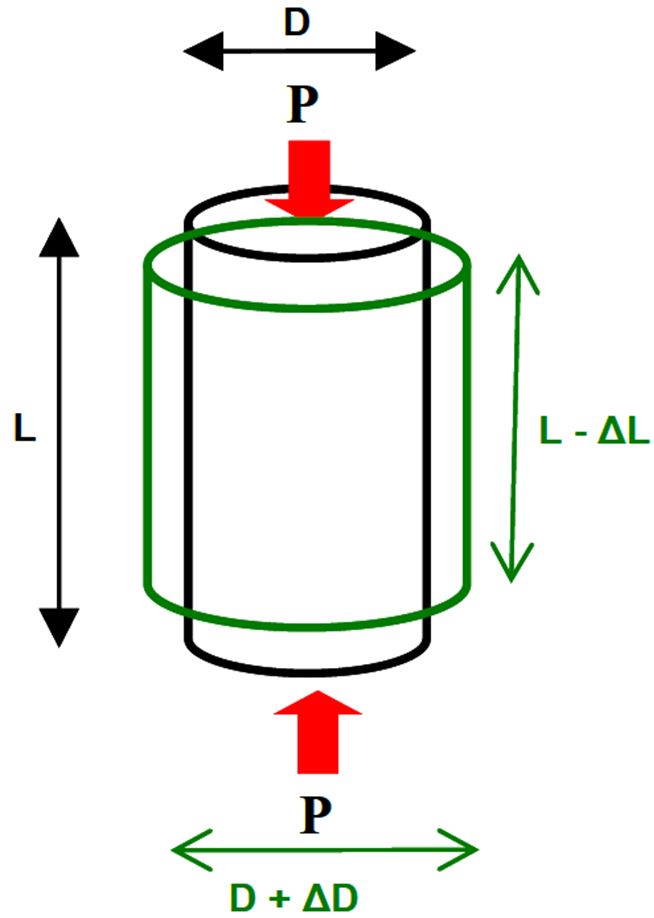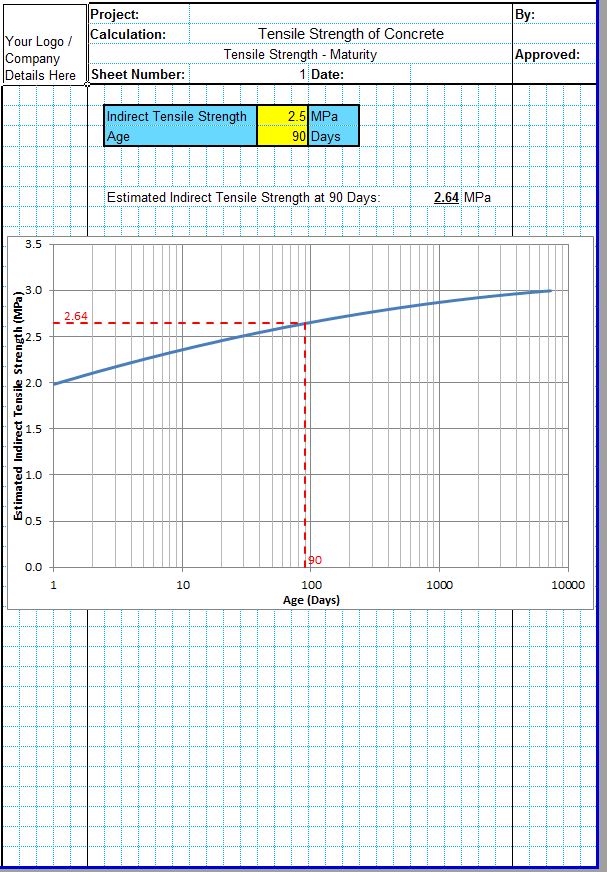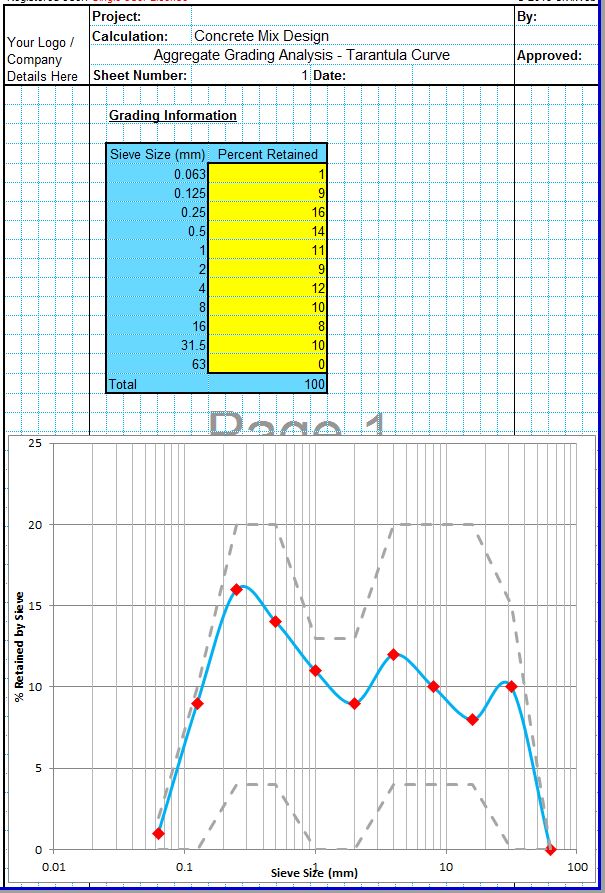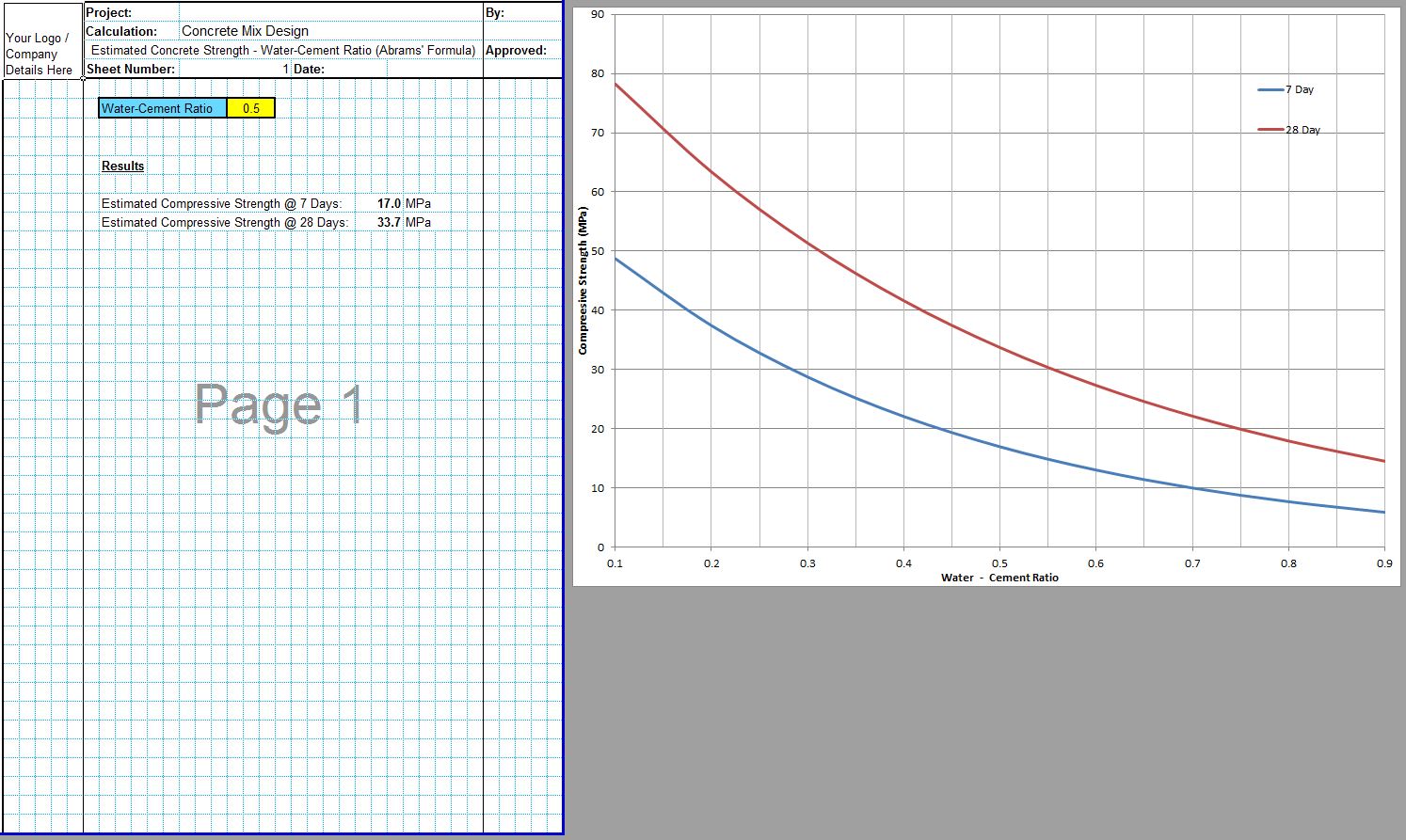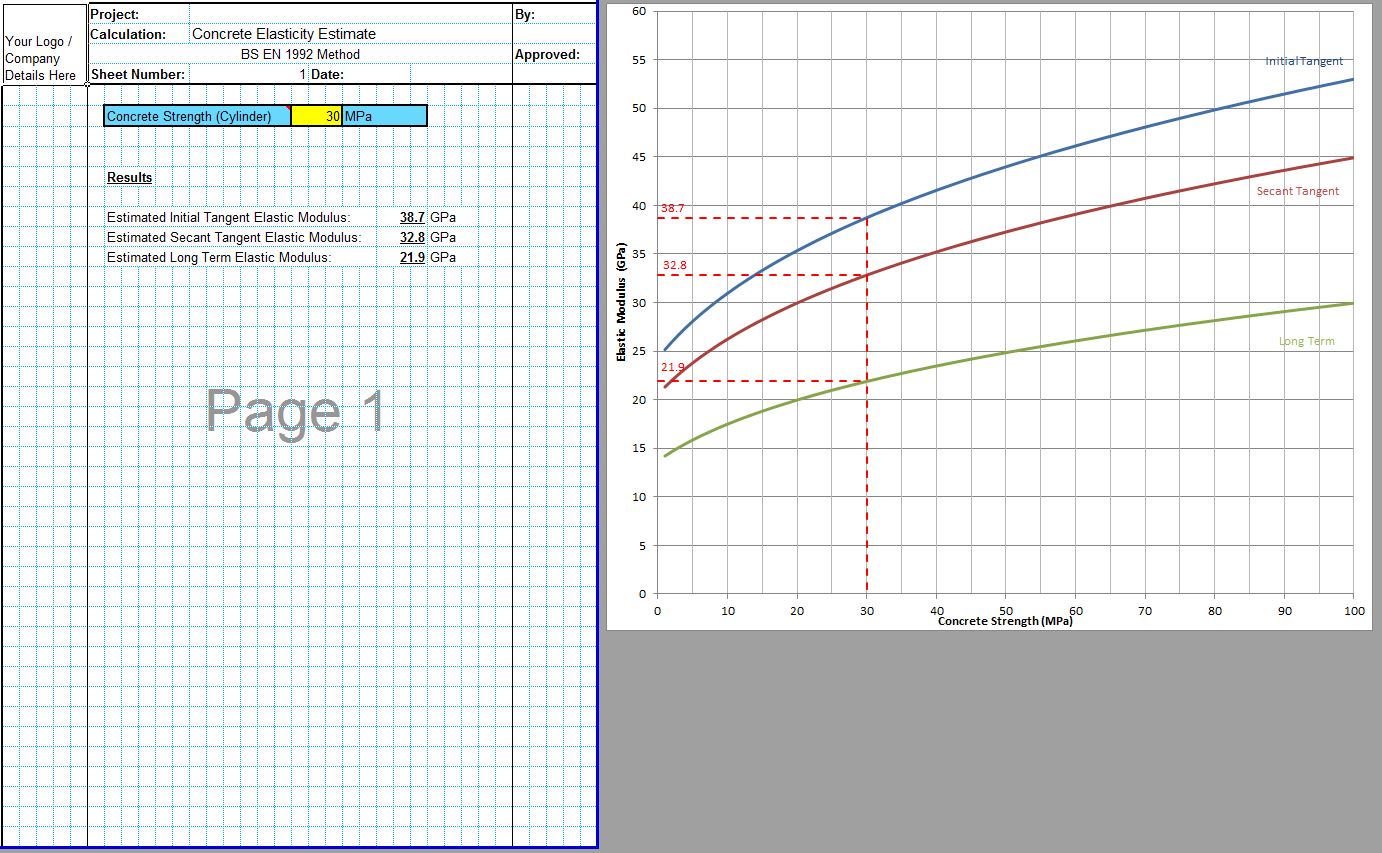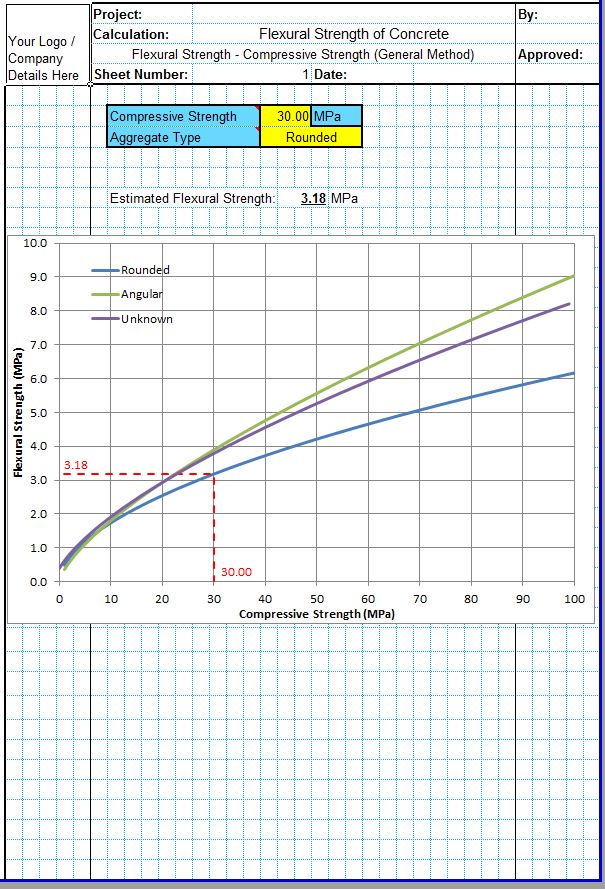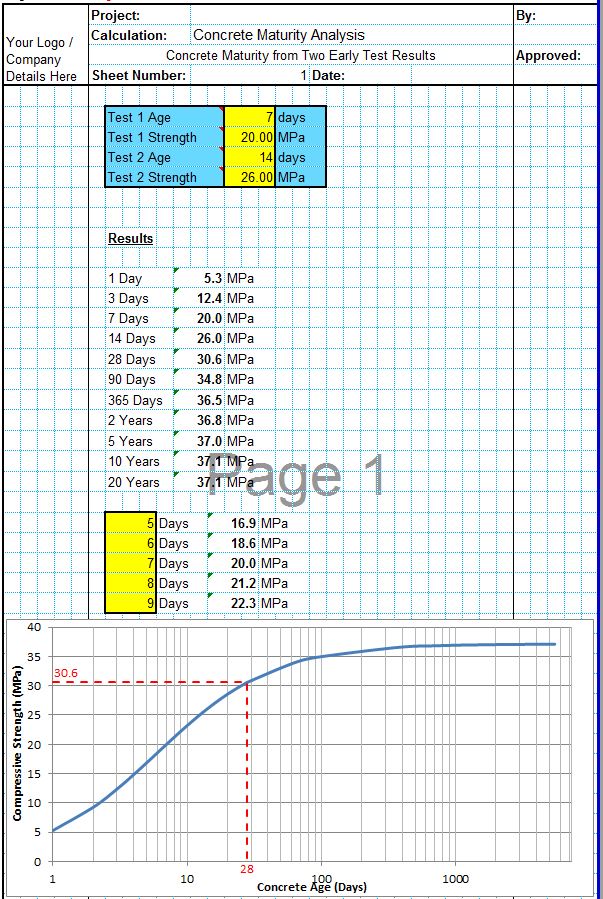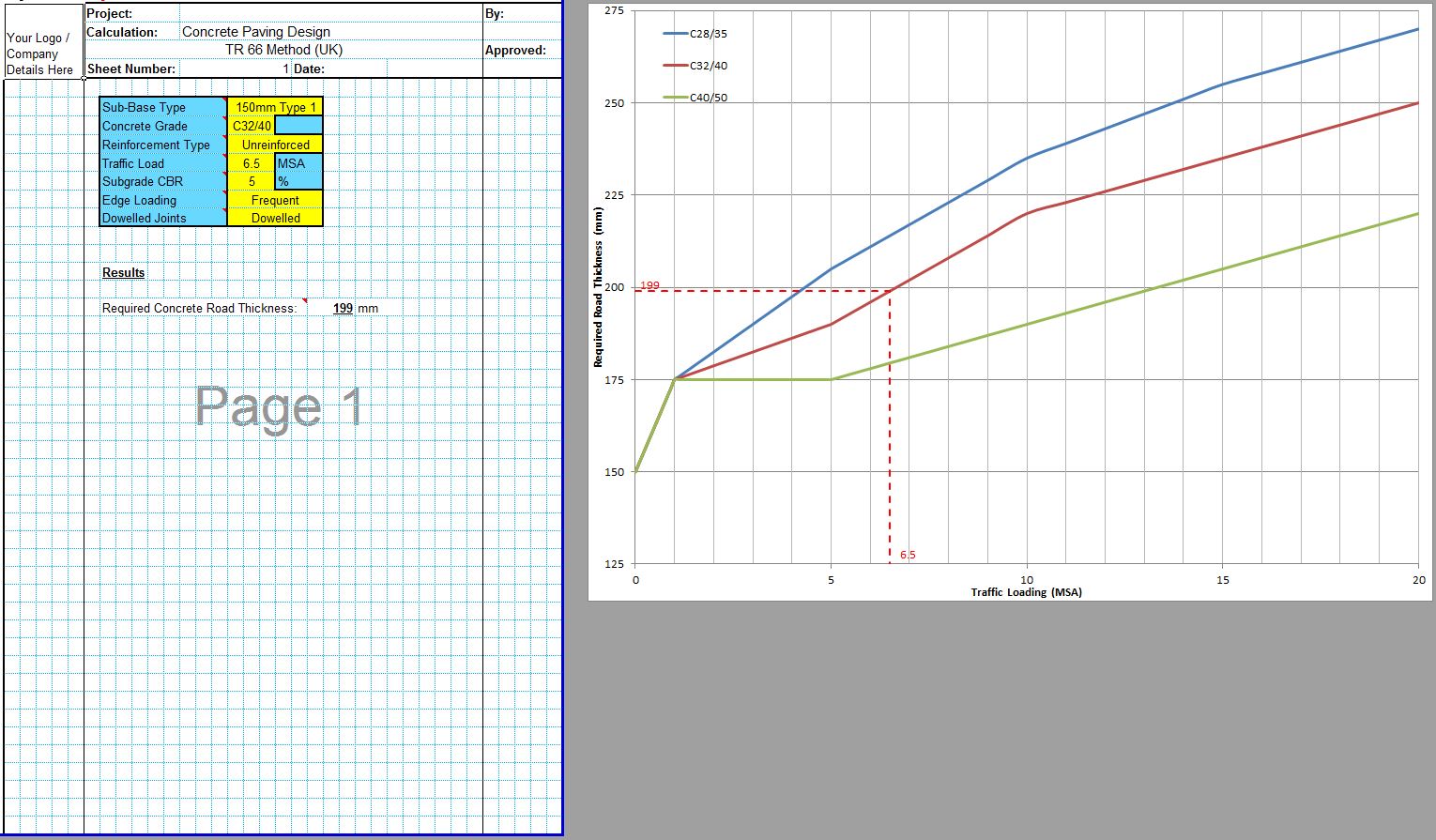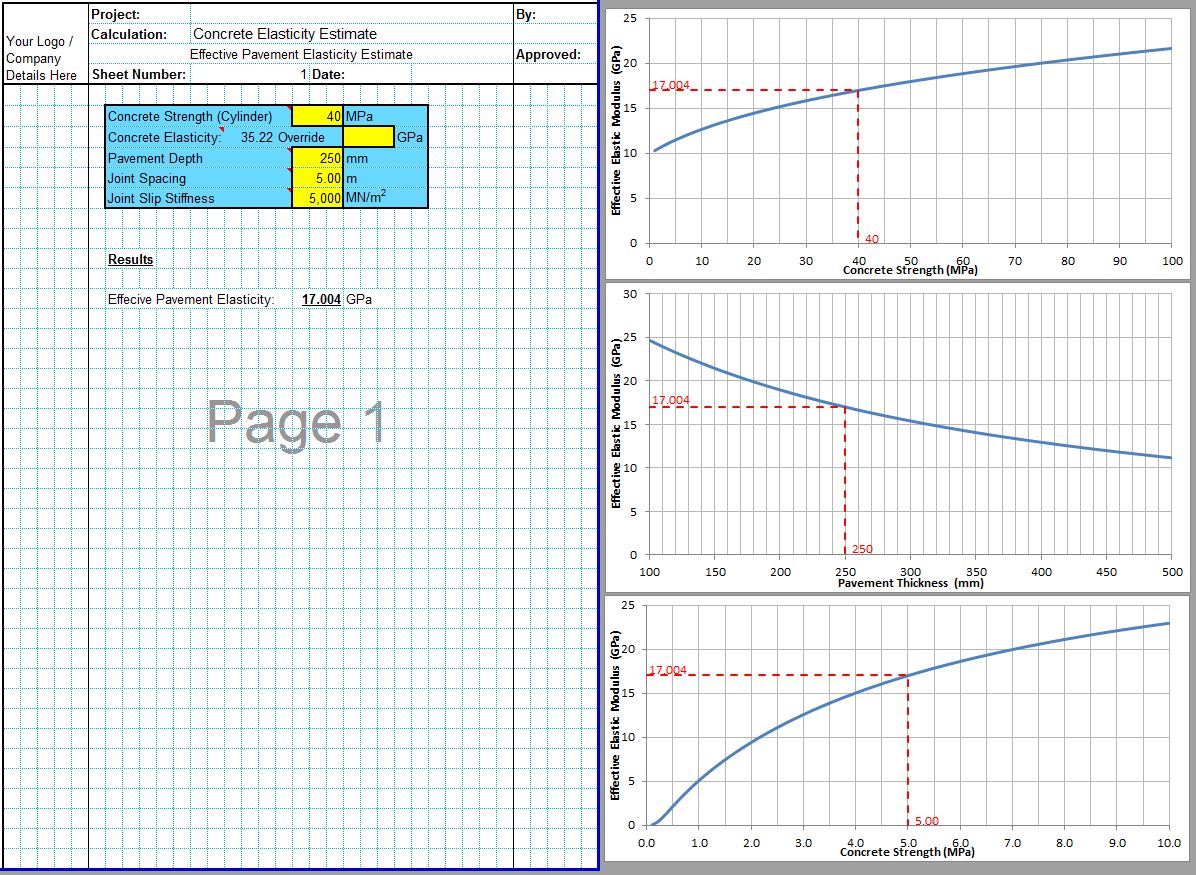Poisson’s Ratio is defined as the ratio of the lateral strain to the axial strain or the amount at which a sample will expand laterally if compressed due to an axial load. An incompressible material will have a value of 0.5. Some saturated clays are almost incompressible and achieve values over 0.45. It is often used alongside elasticity to determine how materials behave under load.
Testing
Poisson’s ratio can be determined from testing at the same time as the elasticity but as explained in our Modulus of Elasticity of Concrete post, this test can be difficult in practice. It also cannot be easily estimated as it is not related to any other properties or constituent materials.
Typical Values
As the Poisson’s Ratio often has very little effect on the results, typical values for materials are usually used rather than attempting to determine an accurate value. For example concrete is usually taken as between 0.15 and 0.20 and steel is often taken as 0.3.
